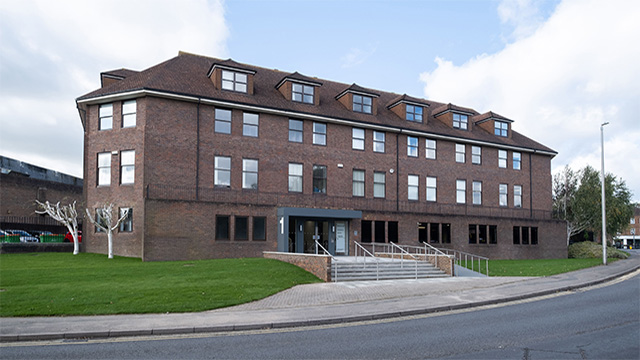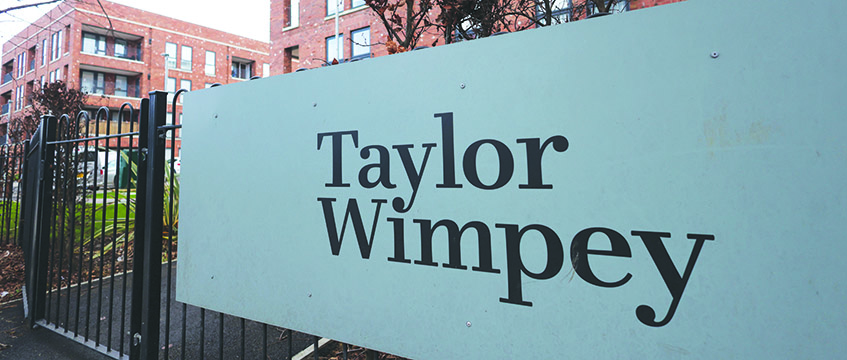Office leasing agents hope for AI gains
News
by
Dominic Plaskota and Tim Burke
Real estate agents are weighing up how the growth of artificial intelligence is likely to affect the office leasing market on two fronts – not only what it will do to occupier demand as businesses adopt it, but also what AI firms themselves will need in terms of space.
The first is a process of discovery, says the team at Savills in a new report. AI will reshape demand for offices as workplaces reduce lower-skilled tasks to focus instead on creativity and collaboration, the agency said.
Savills expects the productivity boost gained from AI to reduce demand for office space modestly in the near term but increase demand in the longer term as workforces shift into service sector employment.
Real estate agents are weighing up how the growth of artificial intelligence is likely to affect the office leasing market on two fronts – not only what it will do to occupier demand as businesses adopt it, but also what AI firms themselves will need in terms of space.
The first is a process of discovery, says the team at Savills in a new report. AI will reshape demand for offices as workplaces reduce lower-skilled tasks to focus instead on creativity and collaboration, the agency said.
Savills expects the productivity boost gained from AI to reduce demand for office space modestly in the near term but increase demand in the longer term as workforces shift into service sector employment.
Creativity and collaboration
This would not be the first time that the adoption of new technologies has reshaped the workplace, the agency said, citing Goldman Sachs analysis that said as many as 60% of employment roles today did not exist in 1940 given that technologies have displaced obsolete roles and created new ones.
Although AI adoption is still in its infancy, with about 8% of European businesses adopting at least one application of AI in 2023, the UK is ahead of the curve, with the figure at 16%.
AI is expected to have a similar impact on office-based employment to the widespread adoption of the internet in the late 1990s, Savills said, ultimately increasing demand for office space rather than reducing it.
Oxford Economics forecasts that 12% of workplace tasks will be automated by 2032. In the transition period companies are expected to want greater flexibility in office lease terms as plans to use AI are enacted and headcounts are scaled accordingly. Initially office demand may be reduced by the reduction in lower-skilled roles, Savills said, but businesses are already preparing to upskill, retrain and hire staff whose skills can be used alongside AI.
The World Economic Forum think tank predicts creative and analytical thinking, AI/big data and leadership skills will be in growing demand over the next five years.
Savills’ report specifically highlights the importance of providing roles across four domains to meet demand for AI-enabled professionals: AI practitioners, AI management and support, organisational decision-makers, and policymakers. This, in turn, is expected to shape the types of workspaces businesses look for. A greater emphasis on creativity and collaboration will need to be accompanied by spaces which can facilitate collaborative work.
Green shoots
AI-focused companies themselves, meanwhile, are tackling their own office needs and have been “expanding rapidly”, Savills said. Central London has been a notable beneficiary, where the agency said AI companies have been upsizing at rates of up to 10 times their existing floorspace as they compete to hire the best talent.
Rival agencies noted that degree of activity globally in their recent second-quarter results. CBRE chair and chief executive Bob Sulentic said on an earnings call: “Beyond New York, in the tech markets, we are seeing a considerable pick-up [in leasing activity], and we believe that it’s driven by AI and all the activity around AI. [In] the Bay Area, Austin, Texas, we’re seeing a pickup in those markets.”
In London, recent deals include text-to-speech and voice AI start-up ElevenLabs choosing flexible office provider Scope.Space’s Soho office for its headquarters.
Founded by British-Polish dual national Mateusz Staniszewski in 2022 at the age of 27, ElevenLabs is already one of the UK’s most valuable AI start-ups, achieving a valuation of £1bn earlier this year. The flex office on the 5th floor of 119 Wardour Street, W1, will house the company’s 20 UK-based employees.
Savills also points to Shoper Group signing for almost 6,500 sq ft for a development centre for its AI operations in Poznan, Poland; US global semiconductor company AMD doubling its footprint signing for 45,000 sq ft at Cambridge Science Park; and AI company Amadeus signed for 5,380 sq ft in Milan, Italy.
“Similar to life sciences, AI remains one of the industries where physical clusters with access to knowledge and expertise remain most important among occupiers,” Savills said.
At Newmark, chief executive Barry Gosin said there are “green shoots all over the place” in the leasing market for AI tenants. “Data centres, digital businesses – I mean, even bitcoin and those kind of businesses are doing well,” he said.
But Gosin added that even in such fast-growth areas, the threat of remote working lingers. “The only issue in terms of office space in the cities are the businesses where people are more soft on people working from home,” he said. “But the metrics are starting to show that productivity is declining and opportunity declines for young workers that don’t come to the office.”
Photo by Deemerwha Studio/Shutterstock











